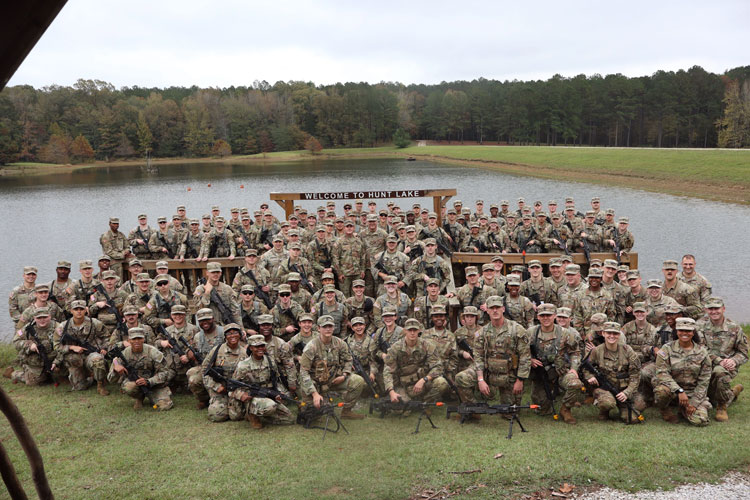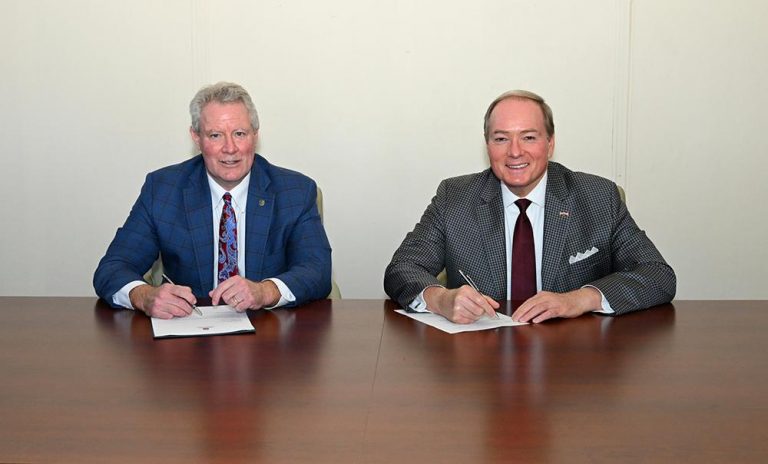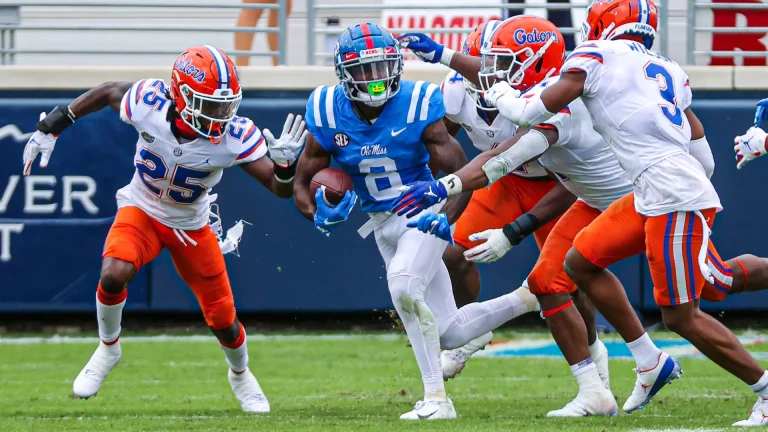
Students in the University of Mississippi's Applied Politics winter intersession course tour the Capitol during their time in Washington, D.C., in January. The group got a behind-the-scenes look at the running of national politics. Photo courtesy of Carly O’Leary/BGR Group
UM applied politics course takes participants to nation’s capital to see changemakers in action
Eleven University of Mississippi students spent their winter break learning about the people who work behind the scenes of the American government in Washington, D.C.
Lead by Jonathan Klingler, assistant professor of political science, the students of Pol 391: Applied Politics met not with candidates, but with the people who make candidates’ work possible: campaign organizers, think tank members, staffers, media liaisons, and chiefs of staff and administration for current and past presidents, senators and congressmen.
The purpose of the Study USA class, Klingler said, is to give students a look at the real-world applications of theory they learn in class and to help them make connections in the nation’s capital.
“Students were really able to see the whole spectrum of working in Washington, from the most political campaign jobs to agency work and lobbying,” Klingler said. “Students gain a lot from being able to see how the theory and scientific knowledge they get from class is applied to real-world situations.”
The speakers, gathered with the help of former Gov. Haley Barbour and the BGR Group, a nonpartisan lobbying firm that helped organize the class, were from a wide variety of careers and backgrounds, Klingler said. Many of them are Ole Miss alumni.
“Many people are unaware of the number of Ole Miss students who are working in Washington,” he said. “The university has a huge resource that it is making available to our students by connecting our D.C. network with our undergrads in Oxford and giving them a chance to start careers with a lot of support and advantages.”
The class gives students an opportunity to experience the many roles they may play in politics and to see the variety of jobs in the field, said John Bruce, chair of the Department of Political Science. Several previous students have found positions or internships with the firms represented in the classroom.
Many students in this year’s class, either while in the capital or after returning home, have already applied for internships or positions with the speakers from the class.
“The classic model for political science is going to law school, but that’s less true now,” Bruce said. “Students are interested in a wider range of careers in the political science spectrum. Having this class where you don’t talk to politicians – you talk to professionals – you get a real sense of what careers are out there.”
Perhaps one of the most salient moments of the trip, however, was seeing that former staffers of presidents Barrack Obama, George Bush, and Donald Trump often know one another and are friends.
“In the current political environment, there’s a lot of toxic language associated with politics and coming out of politicians,” Bruce said. “One of the things that I like about this is students get to go see people in the political arena and see that they’re decent people, even when they disagree. It’s not what you see on MSNBC or Fox; these are real people.”
By Clara Turnage




